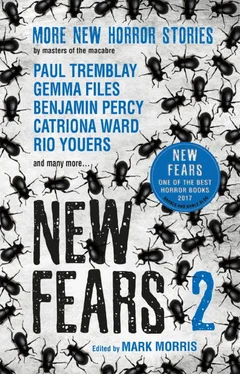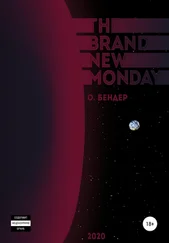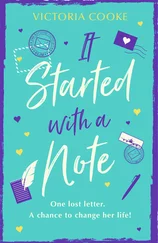At eight o’clock we sent the children to their beds, and Evelyn and I curled in front of the fire, she with her head on my shoulder, me with my fingers in her hair. I smiled and watched the flames, listening to the window rattle, believing myself the luckiest man alive.
Friday 17th January 1964
A strange day, all told. Watkins was right about the snow. My goodness! I woke to a different world, with everything draped in a white so clean it hurt your eyes to look at it. When I left for work, Christopher and Patricia were playing in the front garden, their noses red and their gloves wet from snowballing.
There were no buses running, so I had to walk, and thus arrived late. I wasn’t the only one, of course, so Drummond couldn’t reprimand me, although I could tell he wanted to. I appeased him by completing the Worthington contract ahead of schedule, and starting on Blackwell-Wright. I occasionally glanced up at our single office window, watching the snow fall, sometimes in dusty swirls, often in delicate clusters. The drifts were knee-deep by the time I collected my wages and left. Still no buses, so I walked with my coat tugged close and my scarf wrapped about my face. I trudged down the Old Kent Road, desperately cold and bleak, until I passed Temple’s Bric-à-Brac, where the light spilled onto the pavement in a most inviting fashion. I was drawn to look at the window display and saw there an item that immediately took my fancy: an old typewriter, an Oliver No. 6, with a ridge of dust along its platen and its green paint in places scorched away as if it had been recovered from a fire. The price tag propped between the second and third row of keys read: £1/5s. Rather pricy for a thing so neglected. Nevertheless, it had a distinct appeal, like a mongrel dog or a worn pair of slippers, and I was moved to enquire within.
The shop itself is quite fabulous: a cornucopia of wondrous artefacts in various states of disrepair. Muskets spotted with corrosion, gramophones with tarnished horns, spinning tops that have lost the will to whistle. Temple himself is equally threadbare, a chameleon amongst his wares, to the point that I thought the shop empty when I first entered, and in calling his name was startled to see him rise from the camouflage of a cluttered desk.
“Temple, my good man,” I said as he shuffled towards me. “The typewriter in the window… What can you tell me about it?”
“One pound, five shillings,” he replied.
“Yes, I can see the price tag,” I said. “But does the machine work? It looks in questionable condition.”
Temple shrugged his dusty shoulders. “It’s not meant to work, is it? It’s an antique. A display piece.”
“A display piece?” I barked, aghast. “Where would you display such a monstrosity? Other than in your window?”
“Obviously, it needs to be restored.” Temple took a packet of Embassy Regal from his shirt pocket, but didn’t offer me one. He lit the fag with a box of matches plucked from a nearby table of oddments and blew his smoke into the air above us. “Think of it as a project. You clean it up, replace a few parts, tighten some screws, and Bob’s your uncle. Display in pride of place or sell to a collector. You might even make a few nicker.”
The idea had appeal. Not for fiscal gain, but to take a thing so untended and make it kind on the eye. It seemed the opposite of what we do with our lives—everything being worn to nothing: our possessions, our bodies, our state of mind. Here was an opportunity to reverse the process.
Temple, as I have mentioned, is a dishevelled individual. His skull consists of three teeth, brown as ale and unkindly spaced. His left eye is perpetually closed. It works fine, to the best of my knowledge, but he keeps it screwed shut, regardless. This gives him the appearance of a pirate, which makes bartering with him easier.
“I’ll give you fifteen shillings,” I offered.
Temple blew a string of smoke into the air, which bloomed like a peacock’s tail. “You saw the price tag.” He cracked an unsightly grin. “I’ll take a pound even.”
“Codswallop,” I said. “Seventeen shillings. I’ll not go higher.”
“Nineteen,” he said. “And six.”
“Eighteen,” I countered brashly. “And not a penny more.”
He considered in histrionic fashion, rubbing his chin and shaking his head, and then agreed with a greasy handshake. I subtracted the total from my wage packet of £15, and then left with the typewriter—a deceptively heavy beast—in my arms.
It made the walk home longer, and harder.
I could write several pages more in regard to Evelyn’s reaction to my purchase, but suffice it to say that she was not best pleased, and the atmosphere in the house tonight was decidedly icier than that of yesterday. Indeed, it was less frosty outside, standing next to the snowman built lovingly by my children. At one point his carrot nose fell off, and I popped it back into place, thinking, with a wry smile, that I had better get used to restoring things.
Sunday 19th January 1964
The typewriter is in the shed, sitting on my workbench. It is an ugly little thing, and I can see why Evelyn does not want it in the house. It smells dreadful too. A sickly, back-of-the-throat stench I can only liken to a dead puppy I once discovered in a drift of fallen leaves. Yes… the typewriter smells like a dead puppy.
But not for long. I shall strip it and clean its individual components with cotton buds, fine brushes and turpentine. Broken parts will be either fixed or replaced. Once reassembled, I dare say it will be fine enough for a museum.
Wednesday January 22nd 1964
Spent the entire evening in the shed with my typewriter— or what used to be my typewriter, but is now a sprawl of levers, wheels, bars, and various other pieces I have no name for. Had a blanket wrapped around me, but still so cold, my fingers numb as I painstakingly cleaned each piece. Got about 1/8th of them done. Will continue tomorrow.
Monday 27th January 1964
Repainted the typewriter’s body today. Found the exact shade of olive green in a model shop. It took me hours to sand away the old paint and scorch marks, and I used a spray gun to apply the new coat evenly. I must say, it looks rather splendid.
Wednesday 29th January 1964
An altercation this evening. Evelyn says I am spending far too much time in the shed with my typewriter, to which I replied that a working man is entitled to his small pleasures, and I would not be in the shed at all if the machine were permitted in the house. Voices were raised and the children wept. Evelyn dashed to the bedroom and locked the door. I could hear her crying into the pillows, the foolish woman, so removed to the shed where I lovingly polished the typebars F through to U.
Thursday 30th January 1964
On the way home I bought some carnations from Cheeky Dave’s stall and presented them to Evelyn. It softened the edges, somewhat. By the time we’d finished tea, she could look me in the eye again. She even managed a smile. We then gathered about the fire and listened to the wireless. Patricia showed me her new dance. An imperfect tap dance, of sorts, but then she is only eight. Christopher showed me the book he had borrowed from the library: an illustrated abridgment of Treasure Island . He turned to a picture of Long John Silver, and this made me think of Temple, which in turn made me think of the typewriter. Suddenly I yearned to be in the shed, cleaning ink from the typebars and listening to the comforting click of the ribbon spools. I even stood up, quite distracted from Christopher’s enthusiasm, and took two steps towards the door. Then I stopped. That I would rather be in a cold shed than spend time with my wonderful family filled me with shame. I dropped to one knee, pulled my children close, and whispered that I loved them.
Читать дальше












